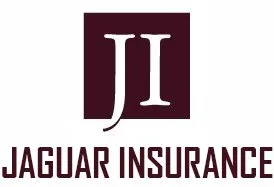Homeowners insurance can vary from state to state due to differences in laws, regional risks, and insurance regulations. Some mandate specific coverages that must be included in a homeowners insurance policy, and states with different climates, like Florida and Texas, face varying risks.
Homeowners insurance is a crucial safeguard for one of your most significant investments—your home. Understanding what it covers can help you select the right policy and protect your property from unexpected challenges.
What Is Homeowners Insurance?
Homeowners insurance is a type of personal insurance that provides financial protection against various risks to your home and its contents. It typically covers damage or loss caused by events like fire, theft, vandalism, and natural disasters (depending on your policy coverage). It also offers liability protection in case someone is injured on your property.
Homeowners insurance is essential for safeguarding your financial well-being. It helps cover repair or replacement costs, legal fees, and medical bills, ensuring that unexpected incidents don’t disrupt your life or financial stability.
In Florida, standard homeowners insurance policies do not cover flood damage, making separate flood insurance a vital purchase for residents in high-risk flood zones. Additionally, sinkholes can occur, and while homeowners insurance must include catastrophic ground collapse coverage, full sinkhole coverage requires an additional endorsement.
Flood Insurance Coverage
While standard homeowners insurance policies protect against many perils, flood damage is not included. Florida homeowners should consider purchasing a separate flood insurance policy through the National Flood Insurance Program (NFIP). Given the state’s vulnerability to hurricanes and tropical storms, flooding is a common risk that requires specific coverage.
Sinkhole Coverage
In Florida, sinkhole activity is a growing concern. Standard policies are required to include coverage for catastrophic ground collapse, but this doesn’t cover all types of sinkhole damage. Homeowners can opt for additional sinkhole coverage to ensure protection against structural damage caused by gradual sinkhole formation.
Law and Ordinance Coverage
Florida law requires insurers to offer law and ordinance coverage, which helps cover the costs of bringing a damaged home up to current building codes after an insured event. This is particularly important in hurricane-prone areas, where building codes are updated regularly to improve structural resilience against storms.
What Does Homeowners Insurance Cover?
Dwelling Protection
Dwelling protection covers the main structure of your home, including walls, roof, and built-in appliances. This ensures financial assistance for repairs or rebuilding in the event of damage from covered perils like fire, windstorms, or vandalism. It’s essential for safeguarding your home’s structural integrity.
Detached Structures
Other structures coverage extends to detached buildings on your property, such as garages, sheds, and fences. This coverage helps repair or replace these structures if they are damaged by a covered peril, ensuring the rest of your property is also protected.
Personal Property
Personal property coverage protects your valuable items, such as furniture, electronics, and clothing. It typically covers these personal items against risks like theft, fire, and certain types of water damage. Some policies offer actual cash value, while others provide replacement cost coverage.
Liability Protection
Liability coverage protects you against legal claims if someone sustains bodily injury on your property or if you accidentally damage someone else’s property. It helps pay for legal fees, medical bills, and any settlements, offering crucial financial protection against lawsuits.
Additional Living Expenses (ALE)
Additional Living Expenses coverage, or ALE, helps cover the cost of temporary housing if your home becomes uninhabitable due to a covered peril. This can include hotel bills, restaurant meals, and other living expenses, ensuring your lifestyle remains as uninterrupted as possible.
Medical Payments
Medical payments coverage provides funds for medical expenses if a guest is injured on your property, regardless of fault. It’s designed to cover minor injuries, helping to avoid potential lawsuits by addressing medical costs promptly.
Loss of Use
Loss of use coverage is similar to ALE but often broader. It not only covers temporary living costs but may also compensate for lost rental income if you rent out part of your home. This coverage helps ensure you don’t face financial strain during repairs.
Optional Endorsements
Optional endorsements allow you to tailor your policy to meet specific needs, such as additional coverage for high-value items like jewelry or artwork. Other endorsements can include protections against risks like earthquakes or sewer backups, offering customized safeguards for unique circumstances.
What Is State Farm Homeowners Insurance?
State Farm homeowners insurance typically includes dwelling protection for the structure, personal property coverage for your belongings, liability protection for legal claims, and additional living expenses if your home becomes uninhabitable. State Farm also offers optional add-ons for increased coverage, such as jewelry or identity theft.
So, what does state farm homeowners insurance not cover? State Farm homeowners insurance does not cover damage from standard exclusions like floods, earthquakes, and normal wear and tear. Coverage for floods and earthquakes typically requires separate policies. Additionally, the policy does not cover damage caused by neglect, intentional acts, or war.
What Are the Types of Homeowners Insurance?
HO-1: Basic Form
HO-1 policies offer the most limited coverage, typically protecting against common perils like fire, theft, and certain natural disasters. While it’s the most affordable option, it may not cover all the risks you face, making it less popular and less recommended.
HO-2: Broad Form
HO-2 policies offer broader coverage, protecting against more types of perils compared to HO-1. This includes events like falling objects, the weight of ice or snow, and water damage from household appliances. It’s a mid-tier option, providing a better balance of protection and cost.
HO-3: Special Form
HO-3 is the most commonly purchased homeowners policy. It provides extensive coverage for your home and other structures, protecting against all perils except those specifically excluded. However, personal property is only covered against named perils, requiring additional riders for complete protection.
HO-4: Tenant’s Form
HO-4, also known as renters insurance, is designed for those who lease rather than own their home. It covers personal property and liability protection but does not protect the physical structures of the building. It’s an affordable way for renters to protect their belongings and liability.
HO-5: Comprehensive Form
HO-5 policies offer the most comprehensive coverage, protecting both your home and personal property against nearly all risks unless explicitly excluded. It often includes higher coverage limits and fewer restrictions, offering maximum protection for homeowners seeking extensive safeguards.
HO-6: Condo Form
HO-6, or condo insurance, is tailored for condominium owners. It covers personal property, liability protection, and any structural improvements made to the unit. The building’s structure and common areas are usually covered by the condo association’s master policy, making HO-6 a perfect complement.
HO-8: Older Home Form
HO-8 policies are created for older homes where replacement cost exceeds market value. They provide coverage similar to HO-1 but may reimburse repair costs that are more suitable for aged structures. They’re ideal for homes with unique architectural features or historical significance.
Looking to Protect Your Florida Home? Call Jaguar Insurance Agency Today
Your home is one of your most important investments. The right insurance coverage can protect you from financial hardships and property damage. Ensuring comprehensive coverage helps maintain your investment’s value.
Jaguar Insurance Agency in St. Port Lucie provides expert guidance to help you choose the best insurance options for your home. Our insurance company offers personalized service to match your specific requirements and protect your investment.
Call us today to safeguard your home with the right insurance. Trust Jaguar Insurance Agency for reliable protection.



